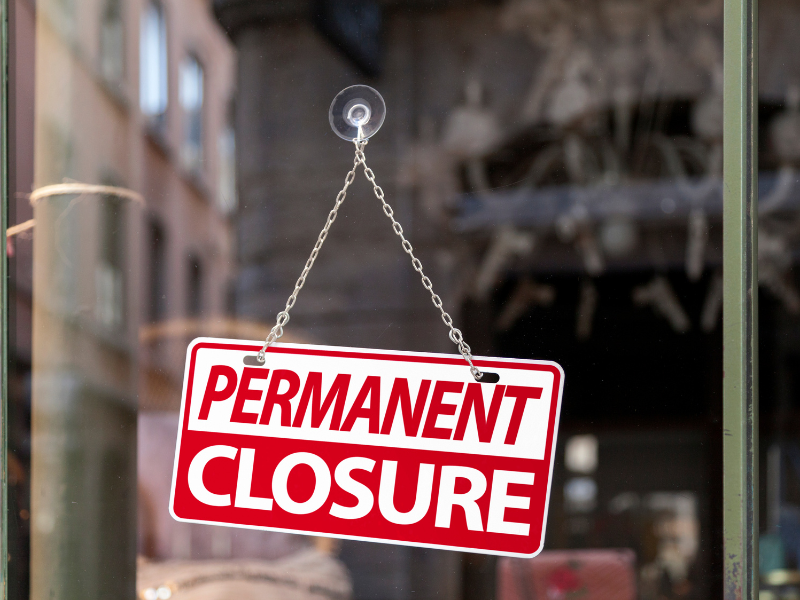Building a startup is an exhilarating journey, but the reality is that most startups don’t succeed. About 50% of new businesses close their doors within five years, and 20% don’t even make it through the first year. Additionally, more than two-thirds fail to deliver a positive return to investors.
Yet, despite these sobering statistics, there’s surprisingly little guidance available on what happens when a startup reaches the end of its journey.
For founders, understanding the winding-down process isn’t just about preparing for worst-case scenarios—it’s about making informed choices that protect your legacy and set you up for future success.
In this blog, we’ll explore five essential things every startup founder should know about winding down a business, so you’re equipped to handle even the toughest transitions with clarity and purpose.
1. Start With a Solid Plan
Winding down a business isn’t something you can approach on the fly. A clear, structured plan ensures that every step is accounted for and executed in compliance with legal and financial obligations. Start by:
- Assessing your obligations: Identify outstanding debts, contracts, and employee obligations.
- Developing a timeline: Map out key milestones, such as filing dissolution paperwork, notifying stakeholders, and distributing assets.
- Engaging the right advisors: Work with legal and financial professionals experienced in business wind-downs to guide you through the process.
Takeaway: A well-crafted plan not only protects you from unnecessary risks but also helps you maintain credibility with investors and stakeholders.
2. Prioritize Transparency With Stakeholders
Open and honest communication is critical during a business wind-down. Whether you’re addressing employees, investors, or customers, it’s important to:
- Deliver the news tactfully: While the conversation may be difficult, transparency fosters trust and reduces the risk of legal or reputational fallout.
- Highlight next steps: Provide clear information on timelines, final payouts, or service discontinuations to minimize uncertainty.
- Stay professional: Maintaining composure and empathy during these discussions leaves a lasting impression and reflects your commitment to integrity.
Takeaway: Remember, how you handle this phase speaks volumes about your leadership and character—qualities that could shape future opportunities.
3. Navigate Financial Complexities With Care
Financial obligations during a wind-down can be particularly challenging. Missteps here could lead to personal liability or harm to your reputation. To ensure smooth sailing:
- Settle debts strategically: Work with creditors to negotiate terms that satisfy obligations without jeopardizing other priorities.
- Reconcile taxes: Ensure all tax filings are up to date, including payroll, sales, and corporate taxes. Penalties for noncompliance can be steep.
- Distribute remaining assets: Follow legal guidelines to distribute any remaining assets to creditors, investors, or shareholders fairly.
Takeaway: Partnering with experts in financial wind-down services can help you tackle these complexities with confidence.
4. Handle Employee Transitions Thoughtfully
Your team has likely been a vital part of your journey, so it’s important to treat them with respect and care during this transition. Steps include:
- Providing advance notice: Give employees ample time to prepare for the transition and secure new opportunities.
- Offering support: If possible, provide severance packages or career transition resources.
- Maintaining compliance: Ensure that final paychecks, accrued benefits, and termination paperwork are handled promptly and accurately.
Takeaway: By prioritizing your employees’ well-being, you preserve relationships and demonstrate leadership even in difficult times.
5. Reflect and Learn From the Experience
While winding down a business is undoubtedly difficult, it also presents an opportunity to grow. Take time to reflect on:
- Lessons learned: Document what worked, what didn’t, and how you navigated challenges— so you’re better prepared for your next venture.
- Feedback from stakeholders: Ask for candid input from investors, employees, and advisors to identify blind spots or strengths.
- Your next move: Whether it’s launching a new startup, pivoting to a different career path, or taking a well-deserved break, use this moment to recalibrate your goals.
Takeaway: Remember, many great entrepreneurs have experienced setbacks before finding success. The way you navigate this chapter sets the stage for the next.
Turning Challenges into Opportunities
Winding down a business is never easy, but with the right mindset and expert support, it can be managed effectively and with dignity. Each step—planning, prioritizing transparency, managing obligations, and reflecting on lessons learned—helps you navigate this challenging phase with the same resilience and determination that drove your startup’s inception.
Ready to take the first step in winding down your business with clarity and purpose? At Ravix Group, we specialize in guiding founders through the complexities of business wind-downs. Schedule a call today to explore how our wind-down consultants can provide the support you need to plan, execute, and confidently close this chapter—while preparing for your next adventure.

